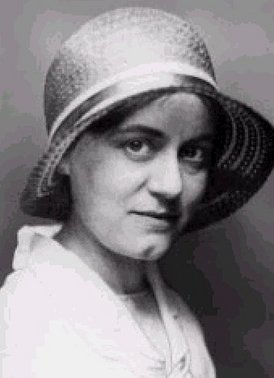The youngest child of 11 of a pious Jewish family, Edith Stein was born 1891 in was a one time Germany and what is now Wroclaw, Poland). Early in life she knew what it meant to face adversity with the death of her father and four of her siblings. By the time she was a teen Edith was not practicing her faith.
Through her study of philosophy, particularly Edmund Husserl, the founder of phenomenology which introduced her to the notion of transcendence which then led her to experience the reality of a transcendent God revealed in Jesus Christ. Philosophy was the condition of Edith’s conversion to Christianity. In 1921 Edith read the autobiography of Saint Teresa of Jesus (Avila) and the catechism; in January 1922 she was baptized.
At 42, Edith Stein entered the Cologne Carmelite monastery after attending the Holy Week Services. The priest who celebrated the Holy Thursday Mass was reason for her following her heart’s desire. She wrote: “I told our Lord that I knew it was His cross that was now being placed upon the Jewish people; that most of them did not understand this, but that those who did would have to take it up willingly in the name of all. I would do that. At the end of the service, I was certain that I had been heard. But what this carrying of the cross was to consist in, that I did not yet know.” In the convent she was devoted to the Carmelite way of life and she was allowed to continue her writing. Her last work was The Science of the Cross. With the Cross in mind, at the age of 50 was killed at Nazi death camp, Auschwitz. It was reported that Edith’s interior strength allowed her to be completely centered and focussed on Christ offering her sufferings and those of others to the Crucified Christ.
Pope John Paul II beatified Sister Teresa Benedicta on May 1, 1987 and canonized her on October 11, 1998. At that time, John Paul said, “Learn from St Teresa to depend on God alone and serve Him with a wholly pure and detached heart. Then, like her, you will be able to say, ‘I do not regret that I have given myself up to love.'”
The liturgical prayer and some links for Saint Teresa Benedict is here…and a good biography is noted here.
